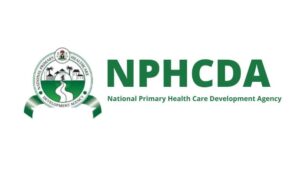World Breastfeeding Week 2021: UNICEF tasks mothers to emulate exclusive practice
By Salim Umar Ibrahim, Kano
In its efforts to creating a healthier and safer lifestyle for the children, the United Nations Children’s Fund, UNICEF, has charged breastfeeding mothers to emulate exclusive practice for the benefit of their children wellbeing.
UNICEF Officer-in-Charge, Kano field office, Michael Banda made the call during a media dialogue on breastfeeding organised to commemorate with the world breastfeeding week 2021 in Kano.
Banda, while educating participants on the importance of the course tasked development partners, intervention programmes on more funding in this regard and ensure promotion as well as sensitising women to prevent their children from being vulnerable to mere diseases as a result of inadequate or low count in breastfeeding.
He called on the media as partners to promote the course of breastfeeding a child exclusively for the first 6 months of birth in other to reap the immune benefits of the practice.
“Media practitioners, you are not just agents of information dissemination, we see you as partners capable of changing every narrative from negative to positive. So, I urge you to extend this very important course to as far as possible members of the community for the betterment of all” he added.
Delivering a presentation titled; “2021 World Breastfeeding Week: A shared responsibility to support breastfeeding and promote zero Water campaign in Kano state,” UNICEF’s nutrition team spoke intensively on initiation of breastfeeding within the first hour of birth, followed by exclusive breastfeeding for six months and continued breastfeeding for up to two years or beyond offer a powerful line of defence against all forms of child malnutrition, including wasting and obesity. Breastfeeding also acts as babies’ first vaccine, protecting them against many common childhood illnesses.
“While there has been progress in breastfeeding rates in the last four decades – with a 50 per cent increase in the prevalence of exclusive breastfeeding globally – the COVID-19 pandemic highlights the fragility of those gains.
“In many countries, the pandemic has caused significant disruptions in breastfeeding support services, while increasing the risk of food insecurity and malnutrition. Several countries have reported that producers of baby foods have compounded these risks by invoking unfounded fears that breastfeeding can transmit COVID-19 and marketing their products as a safer alternative to breastfeeding.”
Set every August for the first seven days of the month, World Breastfeeding Week aims to highlight the huge benefits that breastfeeding can bring to both the health and welfare of babies, as well as a wider push for maternal health, focusing on good nutrition, poverty reduction and food security.
Breastfeeding weeks aim to raise awareness of the health and wellbeing outcomes of breastfeeding and the importance of supporting mothers to breastfeed for as long as they wish.




